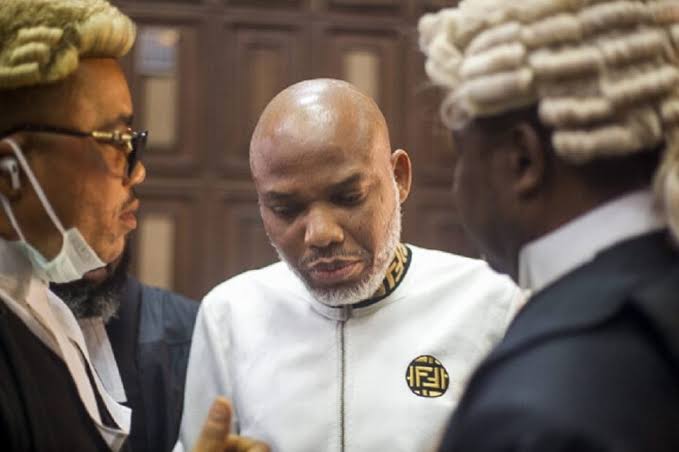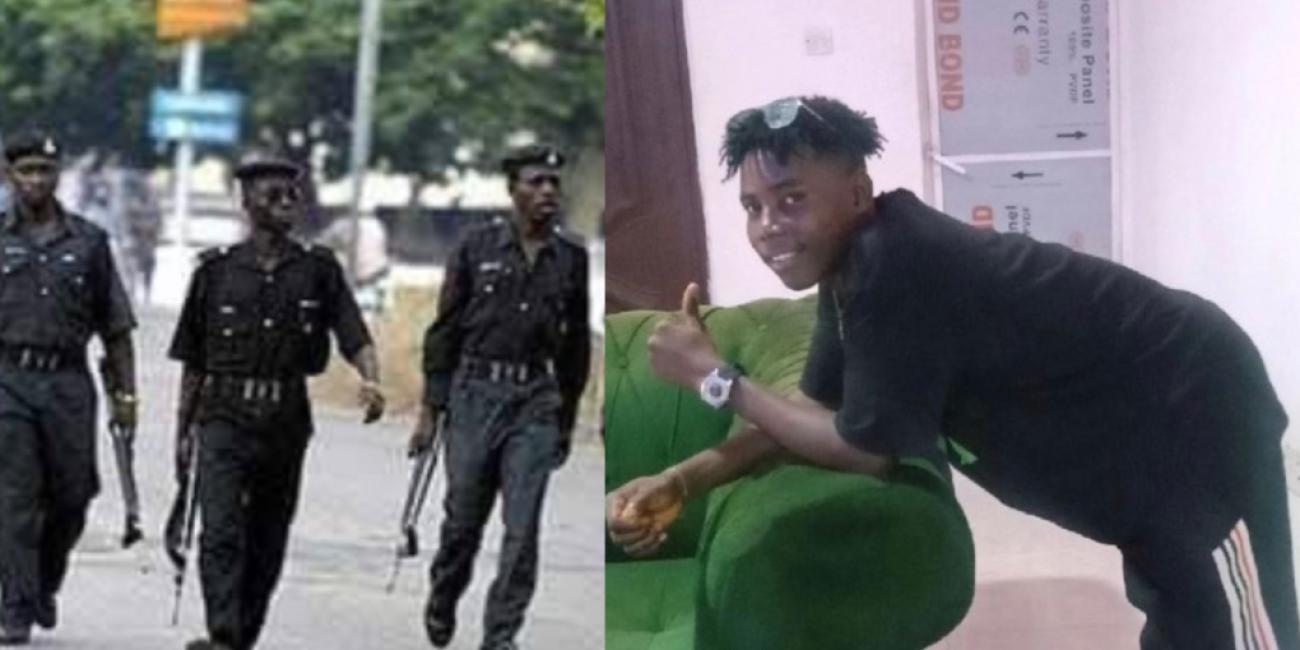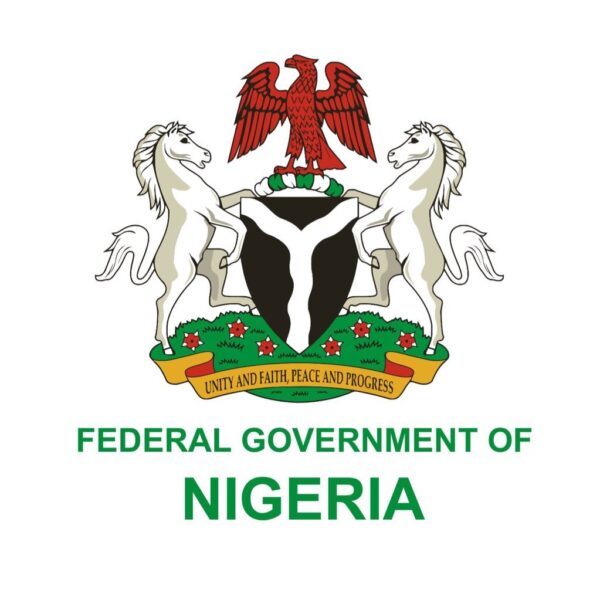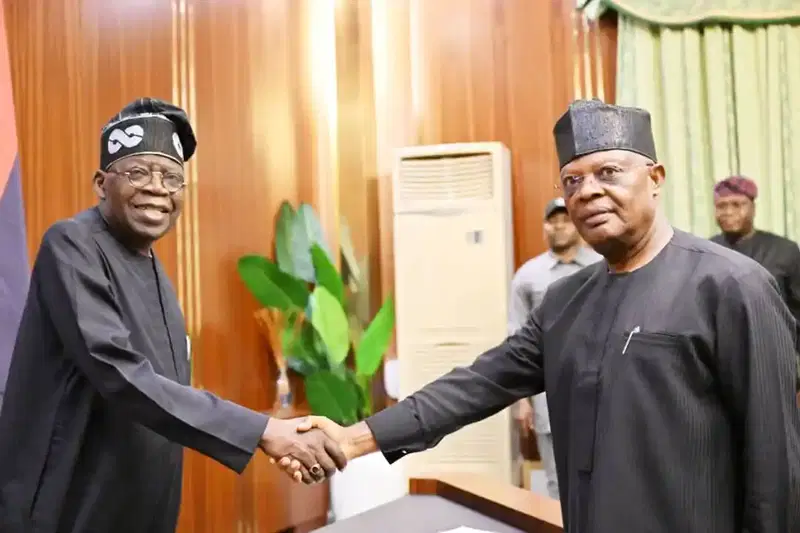Nnamdi Kanu, the embattled leader of the Indigenous People of Biafra (IPOB), has taken a firm stance, vowing never to face trial again before Justice Binta Nyako of the Federal High Court in Abuja. The IPOB leader, who has been in detention since his controversial repatriation from Kenya in 2021, is being prosecuted on charges of terrorism by the Nigerian government.
In an open letter addressed to the Nigerian public, Kanu’s bold refusal to stand trial before Justice Nyako stems from allegations of judicial bias. He pointed to several instances in which he believes his legal rights have been violated, including the judge’s handling of his detention and denial of access to adequate facilities to prepare for trial. His lawyer, Aloy Ejimakor, shared this letter with the public, shedding light on Kanu’s frustrations with the ongoing trial process.
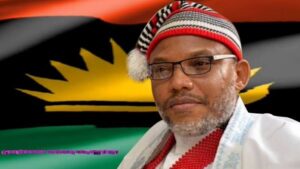
A Timeline of Legal Struggles: Kanu’s Repeated Attempts for Justice
Kanu’s legal saga took a significant turn in September 2024, when he formally requested that Justice Nyako recuse herself from his case. He argued that her actions, such as ordering his detention in the State Security Service (SSS) facility without a fair hearing, demonstrated a clear bias. Additionally, Kanu claimed the judge ignored a Supreme Court ruling ordering his bail to be restored and even sought an expedited trial despite the conditions that hindered his preparation.
While Justice Nyako initially consented to her recusal from the case, the Federal High Court Chief Judge controversially reassigned the matter back to her. This decision sparked further accusations of judicial misconduct, with Kanu alleging a coordinated effort by the Nigerian government to influence the outcome of his trial by ensuring it remained under the control of a judge perceived to be favorable to their agenda.
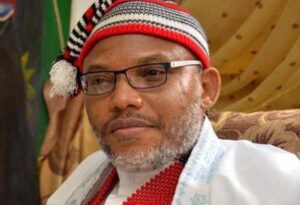
A FIGHT AGAINST JUDICIAL OVERREACH AND VIOLATION OF RIGHTS
In his letter, Kanu elaborated on the broader implications of his case, emphasizing his unwillingness to stand trial in a court system that he believes lacks legitimacy. He insists that he will remain in detention rather than submit to a trial that does not adhere to constitutional standards, describing the situation as a direct attack on his fundamental rights and due process.
He further recalled the unlawful nature of his abduction from Kenya in 2021, which a court had already ruled violated both Nigerian and international law. Despite this, Kanu was not released following the Court of Appeal’s judgment in 2022, which had struck down the terrorism charges against him and ordered his immediate release. The Nigerian government defied the ruling, going so far as to seek a “stay of execution” from the Supreme Court, which ultimately reversed the acquittal in December 2023 and directed the continuation of his trial.
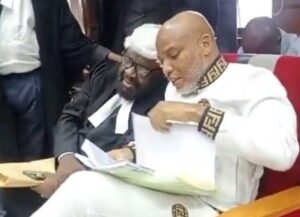
THE QUEST FOR JUSTICE AND ACCOUNTABILITY
Kanu’s refusal to face trial before Justice Nyako underscores the ongoing tension between the Nigerian government and individuals advocating for self-determination. His accusations of judicial bias, coupled with his assertion that the case is being manipulated to secure a conviction at all costs, highlight the broader issues surrounding the administration of justice in the country.
The IPOB leader’s appeal for impartiality and respect for the law continues to resonate, raising critical questions about the integrity of the judicial system and the political motivations behind his continued detention. For Kanu, it’s a stand not only for his personal rights but for the principles of fairness and constitutional integrity that, according to him, the Nigerian government is intent on undermining.


